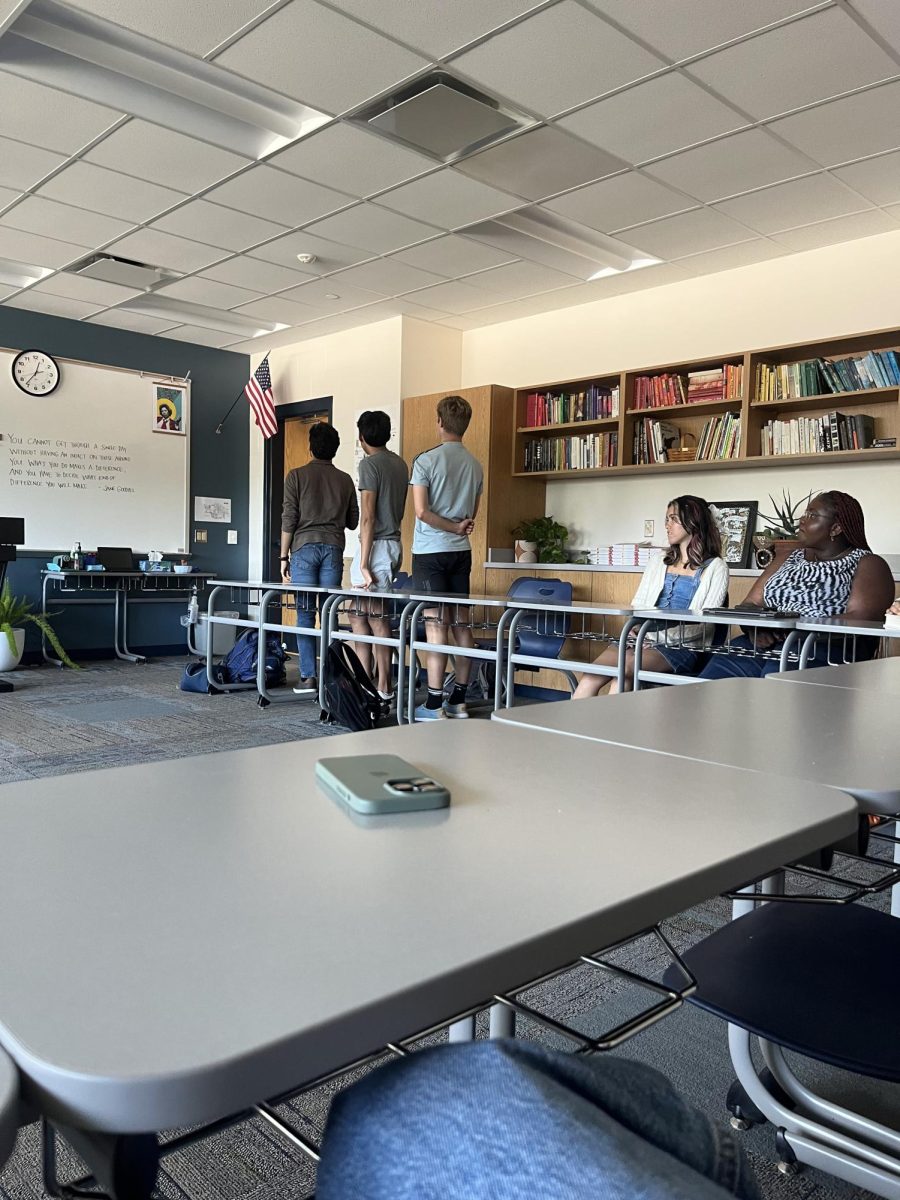Some 55 years after Tinker v. Des Moines guaranteed students their First Amendment rights in public schools, many teachers and students are concerned that history is repeating itself in Iowa.
Senate File 496 has garnered attention across the state for its aggressive stance on book banning; the law was set to remove any books with sexual content from libraries on Jan. 1, 2024.
But before it could take effect, multiple groups sued state officials, citing censorship concerns. Plaintiffs included publishing group Penguin Random House, the Iowa State Education Association and the American Civil Liberties Union.
U.S. District Court Judge Stephen Locher determined that the law could not be enforced, writig in his injunction, “The sweeping restrictions in Senate File 496 are unlikely to satisfy the First Amendment under any standard of scrutiny and thus may not be enforced while the case is pending.”
This decision is an immense relief to some Iowans, including AP Language and Composition teacher Lynne Lundberg, who had been prepared to change almost the entirety of her curriculum. Thanks to the injunction, she will be able to read and discuss books that the bill would block with her classes.
For her, this decision is about making sure students are prepared for the future, something she says teachers are uniquely prepared to do. “I think it’s important that we trust good teachers to know something about what students are ready for, and that we trust students to be able to read difficult material… If we don’t allow students to access and deal with difficult material in an education setting, they’re ill equipped for life,” Lundberg said.
But just because SF 496 has been placed on hold does not mean it will disappear for good— or that its supporters will waiver in their steadfast defense.
“There should be no question that books containing sexually explicit content — as clearly defined in Iowa law — do not belong in a school library for children. The fact that we’re even arguing these issues is ridiculous,” said Governor Kim Reynolds, a fierce proponent of SF 496.
State Senator and former PV School Board President Chris Cournoyer agrees with Reynolds. “SF 496 is about empowering parents in the education of their children and keeping pornography out of the hands of children at their taxpayer funded school,” she explained.
Lundberg sees this content differently, especially when it comes to depictions of sexual assault. She does not view the books she teaches in class as pornography, but art. “For something to be pornographic it has to be that it has no artistic or literary merit, but also it arises prurient interest,” Lundberg explained. “If someone is aroused by sexual assault, that is not a problem with the material. It’s a problem with the reader.”
Many Iowa politicians contend that SF 496 doesn’t ban books at all. “All of the books in question are available at local bookstores and online,” said Cournoyer.
While it is true that some students could access these books outside of school, not all students have the financial or logistical means to obtain books from stores– material which would have previously been available in school libraries or classrooms. To Lundberg and others, this means they are effectively banned. “To take materials that are usually deemed appropriate for the age and the setting and to deny access to those books, I would say that’s a ban,” she said.
Cournoyer believes her experience as a parent gives her an additional perspective. “As a mom, I want my children to be able to access materials to help them be high achievers academically and be prepared for a successful career,” she said. “It is reasonable for parents to know what content their children are being taught and what materials they can access.”
But with or without SF 496, PV parents have the authority to supervise their children’s reading. “Our district has always had the ability for parents or students to say they don’t want to read a certain book. We’ve always done that,” explained English teacher Jenni Levora. “I’ve replaced books for students before and it’s no big deal.”
For many, this is all too similar to the 1969 landmark case Tinker v. Des Moines.
Mary Beth Tinker, one of the students at the forefront of that case, wrote a guest column for the Des Moines Register. “Young people will find a way to speak up about the issues that concern them, even controversial ones,” Tinker wrote. “Some [students] are being accused of being unpatriotic, like we were, for exercising their constitutional rights.”
Eventually, the dust will settle around the fate of Iowa Senate File 496. But the implications will likely linger, raising further questions about the intersection of legislation, a student’s First Amendment rights and public education.

















Folu Adekunle • Feb 5, 2024 at 12:27 am
Tinker vs. Des Moines was always an interesting topic to learn about